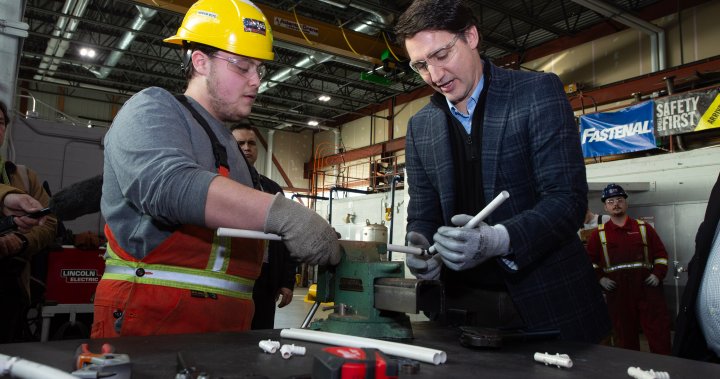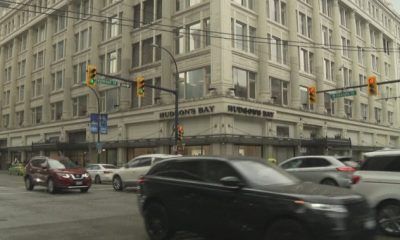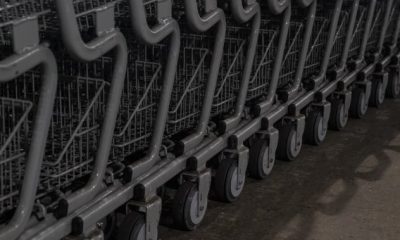General News
The Trudeau Liberals had a tough year. What will they do in 2024? – National

When Justin Trudeau went in to huddle with his cabinet in Prince Edward Island in August this year, he had his work cut out for him as anger over housing and affordability in Canada grows.
Fatigue with an administration now in its eighth year seemed to be setting in, as multiple polls have suggested. In Charlottetown, Trudeau tasked his cabinet with finding a way through the biggest domestic crises. As the new year nears, the question now is: are they doing enough?
“I wouldn’t put this down on my list as one of the great years of my life if I were Justin Trudeau,” said Myer Siemiatycki, professor emeritus of politics at Toronto Metropolitan University. “Politically, I would say that it’s been a very difficult year for his Liberal Party and for himself as prime minister on a couple of grounds.”
Both at home and abroad, Trudeau found himself beleaguered in 2023. Internationally, the twin conflicts in eastern Europe and the Middle East were accompanied by concerns over interference by foreign governments or their agents in Canada’s elections and internal affairs.
“It’s been a long time since we’ve had a prime minister face so many acute, difficult challenges simultaneously within such a short period of time,” Siemiatycki said.
Domestically, experts agree that the rising cost of living and the housing crisis were what turned some voters against the Liberals. This comes as Conservative Leader Pierre Poilievre maintained a consistent lead in the polls in 2023. Polling by Ipsos, provided exclusively to Global News, has shown twice in the last two months that between 69 and 73 per cent of Canadians believe Trudeau should step down now. Among those who identify as Liberal Party supporters, one in three think it’s time for a new party leader.
Amid a record year for wildfires in Canada, a majority of Canadians said they wanted the federal government to do more to stop the climate crisis from getting worse – but worry about increased costs to them. The government’s immigration policies have also been becoming unpopular, with a majority of Canadians believing that higher immigration levels were causing the housing crisis to get worse.
For many, affordability is top of mind. A recent poll said one in four Canadians are worried that their income is not enough to meet basic needs.
“It would take a master juggler to keep all these balls in the air and to handle all of them effortlessly and successfully,” Siemiatycki said. “But I also think there are signs of potential turnaround.”
The new polling done by Ipsos exclusively for Global News found that 69 per cent of Canadians feel Trudeau should resign as Liberal leader and prime minister. The finding comes after earlier polling by Ipsos for Global News done between Nov. 14 and 17 suggested 72 per cent of Canadians felt the same, marking a three-point decrease in the sentiment but within the poll’s margin of error.
Get the latest National news.
Sent to your email, every day.
“When you start poking away at it among people who actually say they voted for him or supported him in the past, their view is one or two things. One is his time has come and gone. He’s given a service and it’s really Canada just needs a change,” Ipsos CEO Darrell Bricker said at the time.
“And then there’s another group among his supporters that say, not this time, because I don’t think he can win and we need to do whatever we can to stop Pierre Poilievre.”
Since the cabinet shuffle in July and the retreat in August, the Liberal government has pressed forward with a slew of announcements. Since emerging from their huddle in P.E.I, the government has pushed major grocery store chains over rising food prices – though efforts to reach a grocers code of conduct may now be stalled – and also threatened curbs on the intake of international students, announced plans they say will help address the labour shortage, introduced a framework for a cap on oil and gas emissions and laid out their plans for dental care for Canadians.
But the biggest moves, experts agree, have come in terms of the housing crisis.
The most recent changes began in July, with Sean Fraser being moved to the Housing Ministry in a move one former senior Liberals says speaks to the need for the government to communicate clearly to Canadians.
“Sean Fraser is exceptional in bringing people to the table, and he is also exceptional in communicating with Canadians on what the federal government is doing. It’s not enough just to do what you have to do. It’s critical for this government to be able to communicate what they are doing over and over again,” said Zita Astravas, former director of issues management for Trudeau and previously a chief of staff to the public safety minister.
“Mr. Fraser is very much turning into the government’s fixer, and I mean that in a positive sense,” Siemiatycki said. “He’s explaining what he’s doing to Canadians very well. His star is definitely on the rise.”

Since taking over the Housing Ministry, Fraser has overseen the rollout of the federal Housing Accelerator Fund and signed deals with a number of municipalities across Canada that have made rapid zoning changes to allow more housing density. In December, Fraser announced the revival of a Second World War-era housing policy that led to the construction of tens of thousands of homes across Canada.
But housing is not an issue that the government will be able to solve overnight, or even within a year. According to a recent report, Canada is short 4.4 million homes that are affordable to people in housing need.
Siemiatycki said whenever an election comes, the Liberals will need to show some tangible progress on housing.
“Something tangible that the federal government would have is to say, here’s how many municipalities we have agreements with to really fast forward the building of affordable housing. I think that would have some impact.”
He also predicted that the government might be a little less bullish on immigration, and both he and Astravas agree that an election is unlikely to be called before 2025.
Astravas said Trudeau has proven the polls wrong before.
“(Trudeau) performs best when he faces a challenge. I don’t think that there has been an election that he’s been leading into in the polls. All that work that he puts in leading up to a campaign, yields results and he’s putting that work in now,” said Astravas, who worked on Trudeau’s campaigns in 2015, 2019 and 2021.
“Justin Trudeau was the leader of the third party in 2015. I was on that campaign. Two years out, people did not expect the results that we saw come through in 2015.”
She said Trudeau could take a leaf out of his 2015 campaign playbook and start to get out of Ottawa more. Astravas said she forecasts a busy travel schedule for Trudeau in 2024.
“He likes to visit coast to coast to coast and sit down with Canadians, whether it’s in a boardroom or whether it’s in a classroom or boardroom or in a community centre. That is when he’s at his best, when he’s getting on the road and talking to Canadian families,” she said.
— with files from David Baxter
Source
Disclaimer: No copyright infringement intended. All rights and credits reserved to respective owner(s).

























